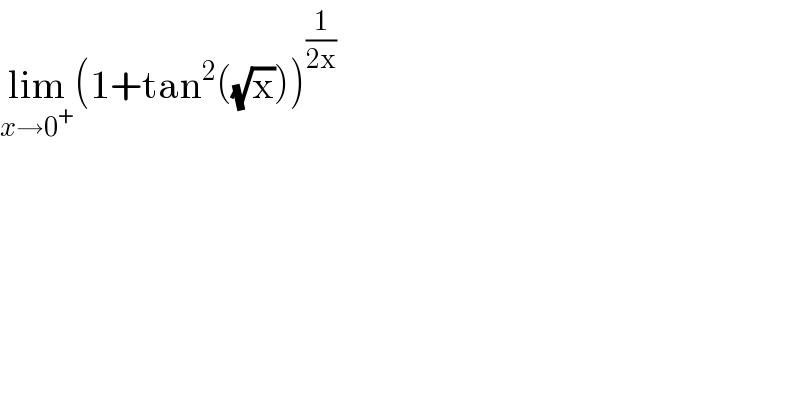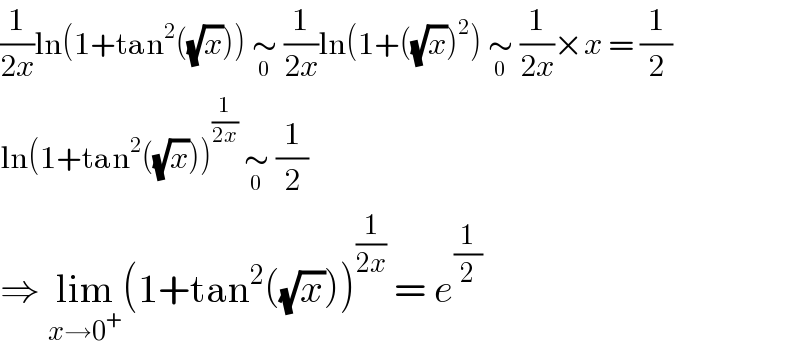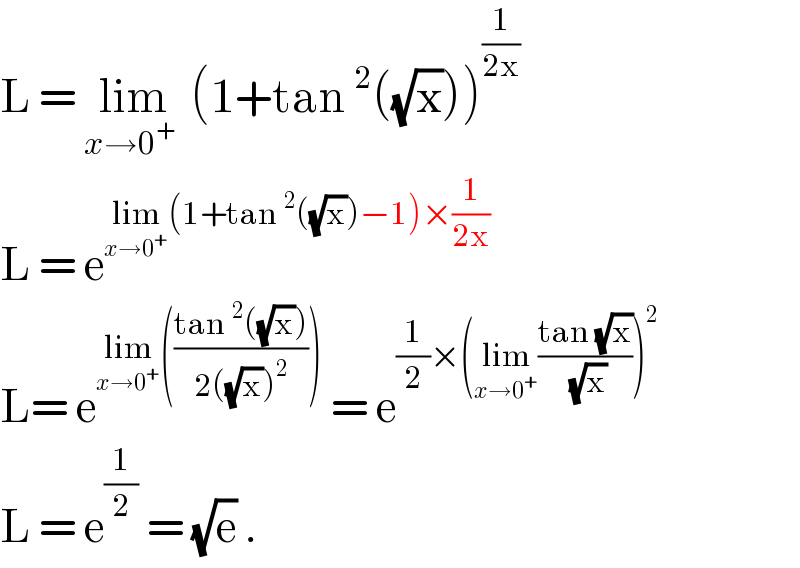
Question and Answers Forum
Question Number 117545 by Lordose last updated on 12/Oct/20

Answered by TANMAY PANACEA last updated on 12/Oct/20

Answered by Olaf last updated on 12/Oct/20

Answered by Dwaipayan Shikari last updated on 12/Oct/20

Answered by bobhans last updated on 12/Oct/20

